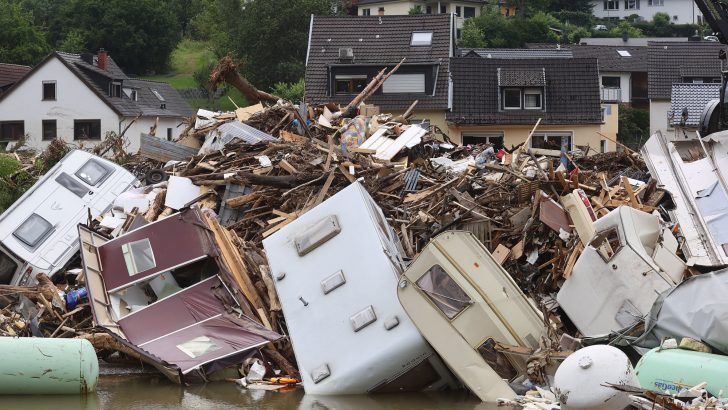It fascinates me that whenever there is a street demonstration in Ireland against the alleged influence of nuns – as there has been in connection with the proposed National Maternity Hospital adjacent to St Vincent’s – protesters come out with the catchphrase, often painted on banners: “Get your Rosaries/Off our ovaries.”
This snappy campaign cry rejects any influence of faith values in the treatment of maternity care, or in obstetrical and gynaecological medicine.
In fact, assurances have been given that the National Maternity Hospital will be run by the Irish state, and not according to an especially Catholic ethos.
However, the campaigners are so fond of this slogan, they like to bring it out at every possible opportunity.
What it signals to me is a woeful lack of knowledge about Irish cultural history, let alone respect. “Get your Rosaries/Off our ovaries” is, like so much else, a transatlantic import. Just as the invocation of characters from The Handmaid’s Tale as a form of demonstration is a North American import.
In Ireland, the Rosary has been associated with an adherence to a national tradition, a tradition of patriotism, even a tradition of matriarchy. As the Republican Kathleen Clarke – widow of 1916 signatory Tom Clarke – recounts in her autobiography, the Rosary was passed down through the generations from grandmother to mother to daughter in Irish patriotic life. The recital of the Rosary was actually one of the ways that women in the family established their authority.
Ernie O’Malley, the Republican who wrote two beautifully-crafted memoirs, described how, during the Anglo-Irish Treaty negotiations of 1921, Irish people knelt outside 10 Downing Street reciting the Rosary to encourage the success of the talks that Collins and Griffith led opposite Lloyd George and Churchill.
Countess Markievicz, who became a Catholic in 1917, was especially devoted to the Rosary, and it greatly comforted her on her deathbed when Fr Michel Sweetman brought her a Rosary beads blessed by Pope Benedict XV.
The Rosary is, of course, a prayer cycle: but in Irish tradition, it is something else as well. It has been a symbol of remembrance, a family tradition, a covenant with the past that had been especially significant to women.
The protestors probably don’t grasp, or don’t know, any of this. They have imported a slick slogan via social media, brandishing it as a form of hate-speech against an Irish patriotic tradition.
This snappy campaign cry rejects any influence of faith values in the treatment of maternity care, or in obstetrical and gynaecological medicine.”
Germany’s tragic flood
It’s been utterly tragic watching the homes of people being swept away by the terrible floods in Germany and Belgium. With the report that 170 people had lost their lives, the thought strikes, once again, that “we know not the day nor the hour”.
There was a striking picture of a house in Bad Neuenahr, in the Rhineland-Palatinate, with its whole side washed away, exposing the family’s rooms. And most visible was a faultlessly arranged and perfectly tidy linen cupboard, quite undisturbed. The German virtue of domestic order all ruthlessly undone by the catastrophe.
Were the floods caused by climate change? I’d like to see more precise evidence. Were there not floods in the Bible?
Secretly attending Mass
After England “unlocked” last Monday, a group of journalists in London were asked what they missed most during lockdown, or Covid-related restrictions. Fraser Nelson, the Editor of The Spectator, replied “Going to church”. He never thought he’d see the day when attending church would be illegal in Britain, as it was during strict lockdown (as in Ireland).
“There are fables in my family of how Scottish Catholics would risk life and liberty to attend Mass during the penal years. ‘Heather priests’ were trained at Scalan, a rural farmhouse, and learnt to dodge redcoats and communicate in code. So it was in this (lockdown) time.” When the churches were closed, Fraser found there was an “underground network” of Catholics attending an almost secret Mass. “I was given the location of a church in the country. It was a small chapel built at a time when Catholics tended to avoid the public eye.” Those present observed the regulations of sitting apart, but sang hymns and received the Eucharist. The priest said that “none of us should underestimate the importance of religious freedom – or how quickly it can be snuffed out”.
Fraser, who comes from a Highland Catholic background, is so right about the importance of attending Mass in person – Zoom is all very well, but Christians, from the beginning, were part of a community. Don’t go the screen route: be there!


 Mary Kenny
Mary Kenny Debris is seen near homes in an area affected by flooding in Kreuzberg, Germany, July 19, 2021.
Debris is seen near homes in an area affected by flooding in Kreuzberg, Germany, July 19, 2021. 